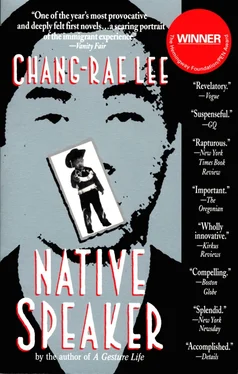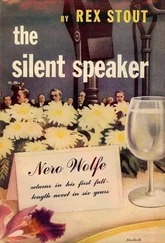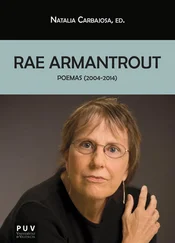Then, inevitably, if I asked hard questions of myself, of the one who should know, what might I come up with?
What belief did I ever hold in my father, whose daily life I so often ridiculed and looked upon with such abject shame? The summer before I started high school he made me go with him to one of the new stores on Sunday afternoons to help restock the shelves and the bins. I hated going. My friends — suddenly including some girls — were always playing tennis or going to the pool club then. I never gave the reason why I always declined, and they eventually stopped asking. Later I found out from one of them, my first girlfriend, that they simply thought I was religious. When I was working for him I wore a white apron over my slacks and dress shirt and tie. The store was on Madison Avenue in the Eighties and my father made all the employees dress up for the blue-haired matrons, and the fancy dogs, and the sensible young mothers pushing antique velvet-draped prams, and their most quiet of infants, and the banker fathers brooding about annoyed and aloof and humorless.
My father, thinking that it might be good for business, urged me to show them how well I spoke English, to make a display of it, to casually recite “some Shakespeare words.”
I, his princely Hal. Instead, and only in part to spite him, I grunted my best Korean to the other men. I saw that if I just kept speaking the language of our work the customers didn’t seem to see me. I wasn’t there. They didn’t look at me. I was a comely shadow who didn’t threaten them. I could even catch a rich old woman whose tight strand of pearls pinched in the sags of her neck whispering to her friend right behind me, “Oriental Jews.”
I never retaliated the way I felt I could or said anything smart, like, “Does madam need help?” I kept on stacking the hothouse tomatoes and Bosc pears. That same woman came in the store every day; once, I saw her take a small bite of an apple and then put it back with its copper-mouthed wound facing down. I started over to her not knowing what I might say when my father intercepted me and said smiling in Korean, as if he were complimenting me, “She’s a steady customer.” He nudged me back to my station. I had to wait until she left to replace the ruined apple with a fresh one.
Mostly, though, I threw all my frustration into building those perfect, truncated pyramids of fruit. The other two workers seemed to have even more bottled up inside them, their worries of money and family. They marched through the work of the store as if they wanted to deplete themselves of every last bit of energy. Every means and source of struggle. They peeled and sorted and bunched and sprayed and cleaned and stacked and shelved and swept; my father put them to anything for which they didn’t have to speak. They both had college degrees and knew no one in the country and spoke little English. The men, whom I knew as Mr. Yoon and Mr. Kim, were both recent immigrants in their thirties with wives and young children. They worked twelve-hour days six days a week for $200 cash and meals and all the fruit and vegetables we couldn’t or wouldn’t sell; it was the typical arrangement. My father like all successful immigrants before him gently and not so gently exploited his own.
“This is way I learn business, this is way they learn business.”
And although I knew he gave them a $100 bonus every now and then I never let on that I felt he was anything but cruel to his workers. I still imagine Mr. Kim’s and Mr. Yoon’s children, lonely for their fathers, gratefully eating whatever was brought home to them, our overripe and almost rotten mangoes, our papayas, kiwis, pineapples, these exotic tastes of their wondrous new country, this joyful fruit now too soft and too sweet for those who knew better, us near natives, us earlier Americans.
For some reason unclear to me I made endless fun of the prices of my father’s goods, how everything ended in.95 or.98 or.99.
“Look at all the pennies you need!” I’d cry when the store was empty, holding up the rolls beneath the cash register. “It’s so ridiculous.”
He’d cry back, “What you know? It’s good for selling!”
“Who told you that?”
He was wiping down the glass fronts of the refrigerators of soda and beer and milk. “Nobody told me that. I know automatic. Like everybody else.”
“So then why is this jar of artichoke hearts three ninety-eight instead of three ninety-nine?”
“You don’t know?” he said, feigning graveness.
“No, Dad, tell me.”
“Stupid boy,” he answered, clutching at his chest. His overworked merchant heart. “It’s feeling.”
I remember when my father would come home from his vegetable stores late at night, and my mother would say the same three things to him as she fixed his meal of steamed barely rice and beef flank soup: Spouse , she would say, you must be hungry. You come home so late. I hope we made enough money today .
She never asked about the stores themselves, about what vegetables were selling, how the employees were working out, nothing ever about the painstaking, plodding nature of the work. I thought it was because she simply didn’t care to know the particulars, but when I began to ask him one night about the business (I must have been six or seven), my mother immediately called me back into the bedroom and closed the door.
“Why are you asking him about the stores?” she interrogated me in Korean, her tongue plaintive, edgy, as though she were in some pain.
“I was just asking,” I said.
“Don’t ask him. He’s very tired. He doesn’t like talking about it.”
“Why not?” I said, this time louder.
“Shh!” she said, grabbing my wrists. “Don’t shame him! Your father is very proud. You don’t know this, but he graduated from the best college in Korea, the very top, and he doesn’t need to talk about selling fruits and vegetables. It’s below him. He only does it for you, Byong-ho, he does everything for you. Now go and keep him company.”
I walked back to the living room and found my father asleep on the sofa, his round mouth pursed and tightly shut, his breath filtering softly through his nose. A single fly, its armored back an oily, metallic green, was dancing a circle on his chin. What he’d brought home from work.
Once, he came home with deep bruises about his face, his nose and mouth bloody, his rough workshirt torn at the shoulder. He smelled rancid as usual from working with vegetables, but more so that night, as if he’d fallen into the compost heap. He came in and went straight up to the bedroom and shut and locked the door. My mother ran to it, pounding on the wood and sobbing for him to let her in so she could help him. He wouldn’t answer. She kept hitting the door, asking him what had happened, almost kissing the panels, the side jamb. I was too frightened to go to her. After a while she tired and crumpled there and wept until he finally turned the lock and let her in. I went to my room where I could hear him talk through the wall. His voice was quiet and steady. Some black men had robbed the store and taken him to the basement and bound him and beaten him up. They took turns whipping him with the magazine of a pistol. They would have probably shot him in the head right there but his partners came for the night shift and the robbers fled.
I would learn in subsequent years that he had been trained as an industrial engineer, and had actually completed a master’s degree. I never learned the exact reason he chose to come to America. He once mentioned something about the “big network” in Korean business, how someone from the rural regions of the country could only get so far in Seoul. Then, too, did I wonder whether he’d assumed he could be an American engineer who spoke little English, but of course he didn’t.
Читать дальше












